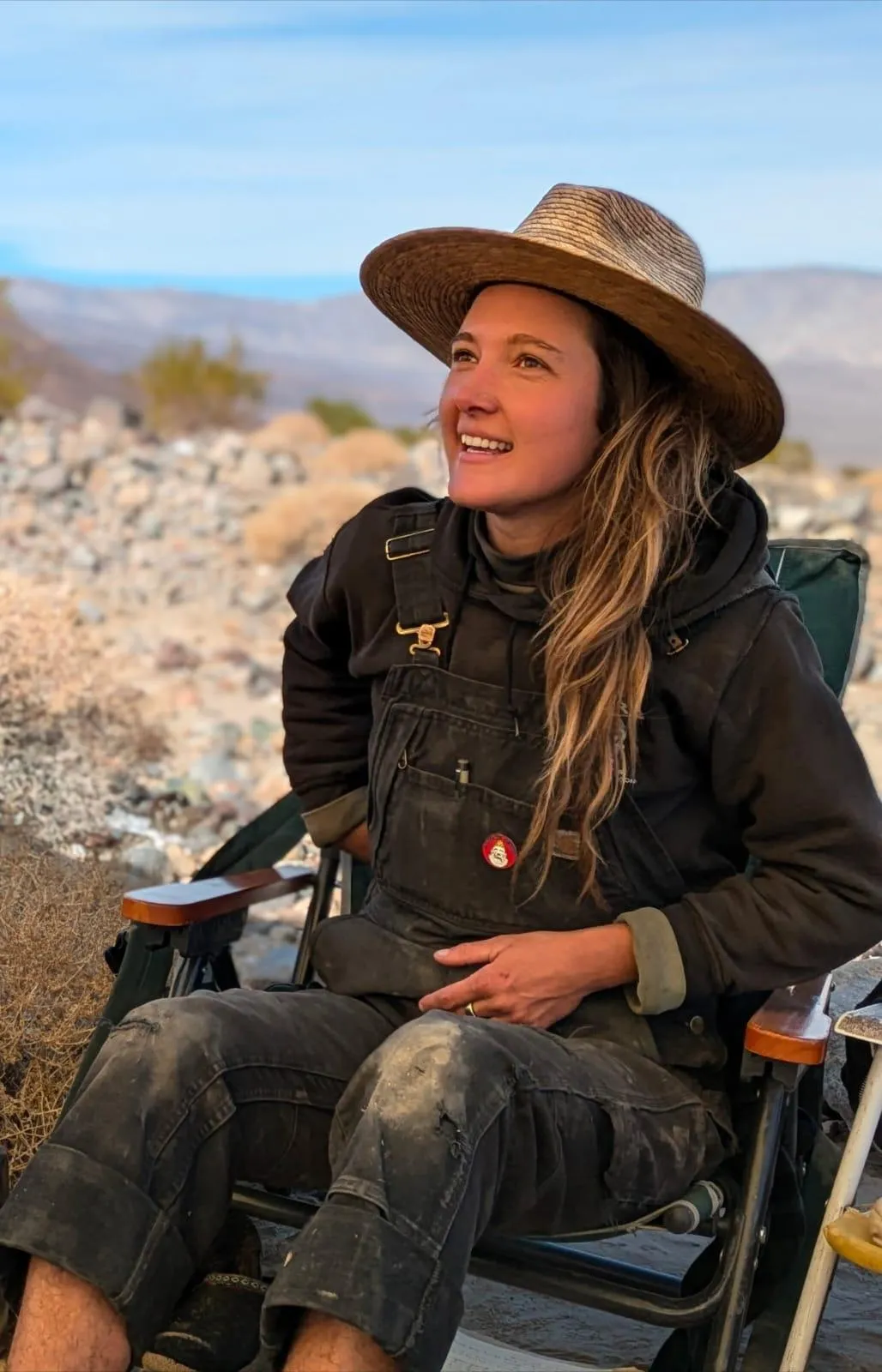2026 Spring Ceremonal Fast
May 27-June 07 2026
Yakima Washington
Why do humans need ceremony?
Contemporary people are so often starved for the sacred. We are hungry for purpose, hungry for containers of meaning, hungry for community, and for relationship with our non-human kin. So many of us are children of the broken path, having forgotten the rituals and ceremonies held by our ancestors and lineages for time immemorial.
What if we told you that this remembrance lives in our bones, and in the spaces of silence and solitude? What if we told you that the path to meaning and purpose is awaiting you in the humility of quiet communion with the land? What if we told you there is a place to bring your questions, your desperations, a place where your cries just might be heard... and, so often, met with answers from the unfathomable?
What if we told you that there is a tradition, a ceremony, a practice shared by each of our lineages to answer the most fundamental questions of what it means to be Human? Known by many names, but carrying the same broad strokes, the wilderness vigil is a guidepost, a guiding light, and an ancient tool available to us all. And now, in this time of great uncertainty, it is a practice calling to us more than ever.
Ceremony is what we do to achieve the impossible. The impossible dream. The impossible vision. The impossible voice beckoning us home.
Offering Overview:
What:
We will gather for 12 days. The first four days will be spent crafting and clarifying your intention. Your intention is your touchstone, the reason you go out, and holds the heart of the person you are attempting to claim during your time on the land. The following 4 days and 4 nights will be spent on the land. You go alone, without food and without shelter, to meet all that is awaiting you in the spaces of liminality. Lastly, you return. You return to the people. Stories are shared and just-so delicately midwifed by your guides as they breathe their first breaths into the world. Then, the final and often most difficult threshold of all, you return home.
Tuition:
Tuition:
$1,100 to $3,500. This includes one organic and expertly crafted mid-day snack and dinner during your time at basecamp, one celebratory brunch after you return from your fast, and the necessary permitting and insurance for us to safely and honorably utilize our time on the land. A deposit of $250 is required to secure your spot.
When & Where:
May 27-June 07 2026
Near Yakima Washington.
The Guides
Nicholas Wasierski

Nicholas was raised in Western Alaska during a winter storm on the Kuskokwim River, steeped in the wisdom of knowing where his food comes from—catching salmon, gathering berries in the summer, and hunting caribou and moose through the fall and winter. He now calls Port Townsend, WA home, where he works as a Structural Integrator (Rolfer), Holistic Health Coach, and Rites of Passage guide through his practice, Wandering Bear Wellness.
In his spare time, you’ll find him singing rain down from the sky, meditating, studying, fishing, and picking flowers under the moonlight.
Bree

Bree:
Stewardess of thresholds. Keeper of rituals of remembrance and belonging. Person of place and body - remembering how to live well.
Student of ritual and ceremony, animism and story, culture and womanhood. With the dedication and imagination to envision the work it will take to become the people who can birth a truly new world.
A person of hearth, home, and heart. Offering others a way to return to spirit, and a way to return to the Earth, to follow the flow of the River that guides us all.
Roger Atlas:

Roger is a purebred lover, born to the way of the healer. His full-time role is serving as a therapy dog for Wandering Bear Wellness. Recently, he’s been joining groups during ceremonial fasts—and thriving in the experience. While his origins trace back to Houston, Texas, his ancestry is Belongs to to the dingo of the Australian outback.
FAQS
What exactly is a Ceremonial Fast, and what is its purpose?
A Ceremonial Fast is a ceremony rooted in ancient, cross-cultural traditions. It typically involves spending several (4) days alone in nature, often with minimal or no food, no shelter and no company to mark a life transition, seek clarity, or reconnect with one’s deeper purpose. The purpose of a Ceremonial Fast is to step outside the noise of daily life and enter a liminal space where profound insight, healing, and transformation can occur. It's often used to honor major life thresholds—such as grief, burnout, the end of a chapter, or the longing to discover what’s next . At its core, a Ceremonial Fast is about listening deeply—to the land, to spirit, and to the voice within you that gets drowned out in everyday life. People often return with a renewed sense of meaning, direction, and connection to self, community, and the Earth.
How long will I be alone, and what are the safety protocols?
The Solo portion will take place over 4 days and 4 nights. You will leave on the morning of the once day and come back the morning of what would be the 5th day.
Do I need to fast from food and water the entire time?
The fasting portion will take place over 4 days and 4 nights. You will be invited to fast from food, shelter, modern technogly and human companionship. You will have water and the option of bringing a journal and a small small objects. This is your ceremony and it is up to you how you choice to spend time fasting.
What kind of preparation is needed beforehand?
1. Physical Preparation
Adjusting diet in the weeks before (e.g. reducing caffeine, sugar, or processed foods).Light physical training like walking or hiking to get comfortable being outdoors for long periods.Testing gear (tent, sleeping bag, layers) to ensure you're ready for wilderness conditions.
2. Emotional Preparation
Identifying the life transition or question bringing you to the fast. Journaling, therapy, or talking with a guide to clarify your intention. Exploring what you're ready to let go of and what you're hoping to receive.
3. Spiritual/Mental Preparation
Spending solo time in nature leading up to the fast. Practicing meditation, prayer, or ritual in your own way. Reading or reflecting on stories of others who have fasted for vision.
4. Logistical Preparation
Packing essential gear: clothing, shelter, journal, ritual items. Communicating with loved ones about your upcoming absence.
5. Community & Commitment
Attending pre-fast meetings or circles to build group connection and receive guidance. Making a clear commitment to cross the threshold intentionally—not just physically, but spiritually.
What happens during the solo time and what am I supposed to do?
There’s no agenda to complete, but a invitation to listen—deeply—to whatever arises. Many describe it as one of the most clarifying, raw, and sacred experiences of their lives.
What support will I have before and after the fast?
There will be 4 days of preparation which will involve helping you get clear on why you think you are there. After the Fast, there will be 4 more days to help unpack and hear your stories, to then help you transition and integrate back to the world.
Is this a religious or spiritual practice tied to a specific tradition?
Ceremonial fasts have been a cross-cultural ceremony for eons. This ceremony has ties to the School of Lost Borders lineage, originally taught by Meredith Little and Steven Foster. We do our best to keep it pan-cultural and respect any belief systems people bring.
What kind of transformation or outcomes do people usually experience?
The transformation people experience on a Ceremonial Fast varies widely and often unfolds in unexpected ways. Some leave with a strong sense of clarity or direction, while others simply feel more grounded, connected, or aware of what’s stirring beneath the surface. For many, it's less about dramatic breakthroughs and more about subtle shifts—a deepening of trust, a release of something old, or a quiet knowing that something has changed. There’s no right way to experience it. The process opens a space where whatever is ready to emerge can be witnessed and honored
Where can put down my deposit?
You can place your deposit at: https://link.wanderingbearwellness.com/payment-link/68e048072197099ddae2682a
You can also send a check to 305 49th St. Port Townsend WA. 98368.
Venmo, PayPal, and Zelle are also options. please reach out if you wish to pay those ways.
